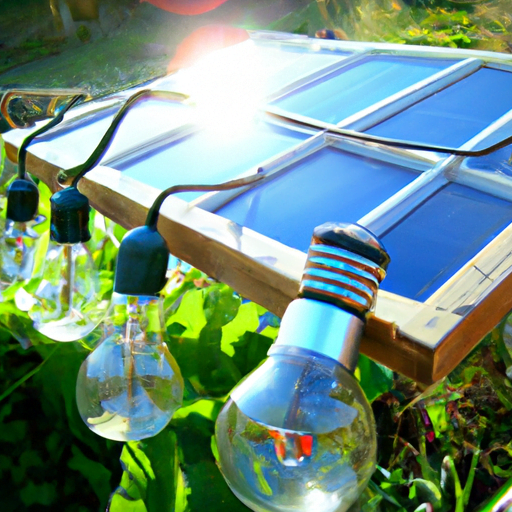Living off-grid presents unique challenges when it comes to maintaining a routine or schedule. Without the comforts and conveniences of modern society, staying organized can be a daunting task. From balancing daily chores to managing personal time, finding a sense of structure in the wilderness requires creativity and adaptability. In this article, I will explore various strategies and techniques that can help individuals maintain a routine or schedule while living off-grid, ensuring a harmonious and fulfilling lifestyle in the great outdoors.

Creating a Routine
Creating a routine is essential for maintaining structure and organization in an off-grid lifestyle. Without a routine, it can be easy to lose track of time and become overwhelmed with the numerous tasks and responsibilities that come with living off-grid. By designating specific time blocks for activities, prioritizing essential tasks, and incorporating leisure and personal time, we can create a well-balanced and sustainable routine.
Designating Time Blocks for Activities
One of the first steps in establishing a routine is to designate specific time blocks for different activities. This helps maintain consistency and ensures that each task receives the attention it deserves. For example, setting aside dedicated time for chores such as collecting firewood, tending to the garden, or maintaining solar panels allows us to efficiently manage these tasks without feeling overwhelmed or rushed.
Prioritizing Essential Tasks
Prioritizing essential tasks is crucial in any routine, and it becomes even more important in an off-grid lifestyle. Balancing basic needs such as food, water, shelter, and energy is a top priority. Allocating time for tasks like meal preparation, water collection, and energy generation ensures that these fundamental needs are met.
Incorporating Leisure and Personal Time
Living off-grid doesn’t mean all work and no play. It is important to incorporate leisure and personal time into our routines to maintain a healthy work-life balance. Whether it’s reading a book, going for a hike, or spending time with loved ones, having designated leisure time helps prevent burnout and promotes overall well-being.
Setting Goals and Deadlines
Setting goals and deadlines is an effective way to stay motivated and focused in an off-grid lifestyle. By identifying short-term and long-term goals, breaking them down into manageable tasks, and establishing realistic deadlines, we can effectively track our progress and ensure that we are continuously moving forward.
Identifying Short-term and Long-term Goals
Identifying both short-term and long-term goals is crucial in any journey, including off-grid living. Short-term goals can include tasks such as setting up rainwater harvesting systems or learning new self-sufficiency skills, while long-term goals may involve achieving complete energy independence or growing a thriving organic garden. These goals provide direction and purpose, enabling us to prioritize our efforts and make progress towards the lifestyle we desire.
Breaking Goals Down into Manageable Tasks
Once we have identified our goals, it is important to break them down into manageable tasks. This helps prevent overwhelm and allows us to focus on one step at a time. For example, if our goal is to establish a sustainable food source, we can break it down into tasks such as researching gardening techniques, preparing the soil, planting seeds, and maintaining the garden. By tackling these smaller tasks, we move closer to achieving our overall goal.
Establishing Realistic Deadlines
While it is important to set deadlines to maintain progress, it is equally important to establish realistic timelines. Off-grid living often involves unpredictable circumstances, such as weather conditions or equipment malfunctions, which can affect our ability to meet deadlines. By allowing some flexibility and adapting to unexpected situations, we can ensure that our deadlines remain achievable and that we don’t become overwhelmed or discouraged.
Managing Energy and Resources
Managing energy and resources efficiently is a cornerstone of off-grid living. By optimizing energy usage, implementing systems for water and waste management, and planning and preparing meals strategically, we can reduce waste and live in harmony with our environment.
Optimizing Energy Usage
Off-grid living often means relying on renewable energy sources such as solar panels or wind turbines. To optimize energy usage, it is important to practice energy conservation techniques, such as turning off lights and appliances when not in use, utilizing energy-efficient appliances, and maximizing natural light whenever possible. By being mindful of our energy consumption, we can minimize our environmental footprint and prolong the lifespan of our energy systems.
Implementing Systems for Water and Waste Management
Water is a valuable resource, especially in off-grid living where access may be limited. Implementing systems for water management, such as rainwater harvesting or graywater recycling, allows us to make the most of available water sources. Additionally, establishing proper waste management systems, such as composting or recycling, helps minimize our impact on the environment and promotes sustainability.
Planning and Preparing Meals
Meal planning and preparation play a vital role in off-grid living. Planning meals ahead of time helps reduce food waste and ensures that we have the necessary ingredients on hand. It also allows us to make the most of seasonal produce and incorporate self-sufficiency by utilizing homegrown or locally sourced ingredients. By preparing meals efficiently and using alternative cooking methods such as solar ovens or wood-burning stoves, we can conserve energy and enjoy delicious, sustainable meals.

Maintaining Self-discipline and Motivation
Living off-grid requires a certain level of self-discipline and motivation. By creating accountability structures, tracking progress, and finding intrinsic motivation, we can stay focused on our goals and maintain the determination necessary to thrive in an off-grid lifestyle.
Creating Accountability Structures
Creating accountability structures is essential to staying on track and maintaining discipline. This can involve partnering with a like-minded friend or family member, joining support groups, or participating in work-exchange programs. By surrounding ourselves with individuals who share our values and goals, we can hold each other accountable and provide mutual support and encouragement.
Tracking Progress and Celebrating Milestones
Tracking progress is crucial for maintaining motivation. Keeping a journal, using a progress tracker, or maintaining a vision board allows us to visually see our growth and accomplishments. Additionally, celebrating milestones along the way helps reinforce positive behaviors and serves as a reminder of the progress we have made. Whether it’s a small achievement like successfully starting a fire using primitive methods or a significant milestone like achieving complete self-sufficiency, celebrating these accomplishments keeps us motivated and excited for what lies ahead.
Finding Intrinsic Motivation
While external accountability structures and milestones are important, finding intrinsic motivation is equally essential. Intrinsic motivation comes from within and is driven by personal values, passions, and desires. Identifying the reasons why we chose an off-grid lifestyle, such as a desire for self-sufficiency, a love for nature, or a commitment to sustainability, helps us tap into our intrinsic motivation and maintain unwavering determination.
Establishing a Daily Routine
Establishing a daily routine is the foundation for maintaining consistency and structure in an off-grid lifestyle. By incorporating waking up and bedtime rituals, morning and evening hygiene practices, as well as exercise and meditation, we can start and end our days in a productive and fulfilling manner.
Waking Up and Bedtime Rituals
Waking up and bedtime rituals provide structure and set the tone for the day. Starting the day with a consistent morning routine, such as stretching, journaling, or practicing gratitude, helps create a positive mindset and prepares us for the day ahead. Similarly, establishing a bedtime routine, such as reading a book, meditating, or practicing relaxation techniques, signals to our bodies that it’s time to wind down and facilitates a restful night’s sleep.
Morning and Evening Hygiene
Maintaining proper hygiene practices is crucial for overall well-being. Incorporating morning and evening hygiene routines, such as brushing teeth, washing the face, and taking a refreshing shower, helps us feel clean, refreshed, and ready to tackle the day. Additionally, using natural and eco-friendly hygiene products supports our commitment to sustainability and reduces our impact on the environment.
Exercise and Meditation
Exercise and meditation are integral components of a healthy routine, both physically and mentally. Engaging in regular physical activity not only improves fitness levels but also reduces stress, increases energy levels, and enhances cognitive function. Whether it’s yoga, jogging, or gentle stretching exercises, finding an exercise routine that suits our preferences and capabilities is essential. Similarly, incorporating meditation or mindfulness practices helps promote mental clarity, emotional well-being, and stress reduction. By allocating time for these practices, we invest in our physical and mental health, ensuring that we can fully enjoy and embrace the off-grid lifestyle.
Utilizing Calendars and To-Do Lists
Utilizing calendars and to-do lists is an effective way to stay organized and manage our tasks efficiently. Whether it’s a physical or digital calendar, organizing tasks with to-do lists, or scheduling regular check-ins, these tools help us prioritize and track our progress.
Using Physical or Digital Calendars
Using calendars, either physical or digital, helps us stay on top of our commitments and obligations. It allows us to schedule important tasks, appointments, or events, ensuring that we allocate adequate time and resources to each. Whether it’s a paper calendar hung on the wall or a digital calendar synced with our devices, finding a calendar system that suits our preferences and lifestyle is crucial for effective time management.
Organizing Tasks with To-Do Lists
To-do lists help us break down our tasks into actionable steps and keep track of what needs to be accomplished. They provide a visual representation of our priorities and help us allocate our time effectively. By organizing tasks according to urgency or importance, we can navigate through our daily routines more efficiently and ensure that all essential tasks are addressed.
Scheduling Regular Check-ins
Regularly checking in on our progress and reviewing our routines allows us to make necessary adjustments and improvements. Allocating time to evaluate the effectiveness of our routine, assess our goals, and reflect on our achievements provides an opportunity for continuous growth and development. It also serves as a reminder of the progress we have made and the importance of maintaining our routines for long-term success.
Building a Supportive Community
Building a supportive community is invaluable in an off-grid lifestyle. Engaging with like-minded off-grid individuals, joining online forums and communities, as well as participating in skill-sharing and work-exchange programs, allows us to connect, learn, and grow together.
Engaging with Like-minded Off-grid Individuals
Connecting with like-minded off-grid individuals provides a sense of belonging and support. Whether it’s attending local off-grid gatherings, joining self-sustainable living groups, or establishing relationships with neighbors who share similar values, having a community to turn to for advice, encouragement, and assistance is essential in overcoming challenges and celebrating successes.
Joining Online Forums and Communities
The internet provides a wealth of resources and opportunities to connect with like-minded individuals from all over the world. Joining online forums and communities dedicated to off-grid living allows us to tap into a vast network of knowledge and experiences. It gives us the chance to learn from others, seek advice, and share our own insights. Building relationships through virtual communities ensures that we have access to a support system regardless of geographical limitations.
Participating in Skill-sharing and Work-exchange Programs
Skill-sharing and work-exchange programs offer unique opportunities for learning and growth. Engaging in programs that facilitate the exchange of skills and knowledge allows us to expand our capabilities, learn from experts in various fields, and contribute to a supportive community. Whether it’s teaching others our skills or acquiring new skills from fellow off-grid enthusiasts, skill-sharing and work-exchange programs enhance our self-reliance and foster a sense of community spirit.
Embracing Flexibility and Adaptability
Off-grid living often requires a certain level of flexibility and adaptability. Accepting the unpredictability of off-grid living, adjusting plans and routines as needed, and finding opportunities in unexpected situations allow us to embrace the challenges and thrive in this lifestyle.
Accepting the Unpredictability of Off-grid Living
Living off-grid means embracing the unpredictability of nature, weather conditions, and other external factors. It requires a mindset shift and a willingness to adapt to unforeseen circumstances. By accepting that not everything will go as planned and maintaining a flexible attitude, we can navigate through unexpected challenges with resilience and creativity.
Adjusting Plans and Routines as Needed
Off-grid living often necessitates adjusting plans and routines to accommodate changing circumstances. Whether it’s a power outage, extreme weather conditions, or unexpected repairs, being flexible and open to modifying our plans allows us to maintain productivity and adapt to challenging situations. It also helps us avoid frustration or disappointment when things don’t go according to plan.
Finding Opportunities in Unexpected Situations
While unexpected situations may initially seem daunting, they often present valuable opportunities for growth and learning. Embracing these opportunities, such as discovering alternative energy solutions during a power outage or finding innovative ways to overcome resource scarcity, can lead to creative problem-solving and increased self-reliance. By reframing unexpected situations as learning experiences, we can transform challenges into valuable lessons and further enhance our off-grid journey.
Balancing Work and Life
Balancing work and personal life is essential in maintaining overall well-being and happiness in an off-grid lifestyle. By establishing boundaries between work and personal life, utilizing time management techniques, and prioritizing self-care, we can achieve a harmonious balance between our responsibilities and our desire for a fulfilling off-grid lifestyle.
Establishing Boundaries between Work and Personal Life
In an off-grid lifestyle, work and personal life can easily overlap, making it crucial to establish boundaries. Setting designated work hours, creating a separate workspace, and communicating expectations with family or others living alongside us helps maintain a healthy work-life balance. It ensures that we have dedicated time for work-related tasks while also having ample time to relax, pursue hobbies, and spend quality time with loved ones.
Time Management Techniques
Time management plays a vital role in balancing work and personal life. Employing techniques such as the Pomodoro Technique, time blocking, or prioritizing tasks helps us stay organized and focused on our goals. By allocating specific time slots for different activities, we can enhance productivity, reduce procrastination, and maintain control over our schedules. It also allows us to have dedicated time for personal pursuits and leisure, fostering a well-rounded and fulfilling off-grid lifestyle.
Prioritizing Self-care and Well-being
In the midst of juggling multiple responsibilities, it is crucial to prioritize self-care and well-being. This includes taking regular breaks, practicing stress management techniques, engaging in hobbies or activities that bring joy and relaxation, and investing time in personal growth and development. By prioritizing self-care, we recharge our energy, reduce burnout, and ensure that we have the mental and emotional capacity to enjoy the beauty and tranquility that off-grid living offers.
Reflecting and Evaluating
Regularly reflecting on our routines, assessing progress and effectiveness, seeking feedback from others, and making adjustments for continuous improvement are key to thriving in an off-grid lifestyle.
Regularly Assessing Progress and Effectiveness
Reflecting on our routines and assessing their progress and effectiveness allows us to identify areas that are working well and areas that need improvement. This reflection can be done weekly, monthly, or annually, depending on individual preferences. Evaluating whether our routines align with our goals, if they are efficient, or if any adjustments need to be made helps ensure that we are continuously progressing towards the off-grid lifestyle we desire.
Seeking Feedback and Input from Others
Seeking feedback and input from others is invaluable in gaining a fresh perspective and identifying blind spots. This can be done through conversations with fellow off-grid enthusiasts, participating in workshops or seminars, or seeking guidance from mentors. By listening to the experiences and insights of others, we broaden our knowledge base, gain new ideas, and become more aware of potential improvements in our own routines.
Making Adjustments for Continuous Improvement
Based on the feedback and assessments, it is important to make necessary adjustments and improvements to our routines. This could involve revising time allocations, re-evaluating goals, or exploring new strategies. The ability to adapt and improve our routines is crucial for personal growth and development. By continuously learning, adjusting, and refining our routines, we ensure that we are on a path of continuous improvement and success in our off-grid lifestyle.
In conclusion, maintaining a routine or schedule off-grid requires careful planning and organization. By creating a routine that designates time blocks for different activities, setting goals and deadlines, managing energy and resources efficiently, maintaining self-discipline and motivation, establishing a daily routine, utilizing calendars and to-do lists, building a supportive community, embracing flexibility and adaptability, balancing work and life, and regularly reflecting and evaluating, we can cultivate a sustainable and fulfilling off-grid lifestyle. While living off-grid may present challenges, with the right mindset and strategies, we can thrive in this unique and rewarding way of life.




